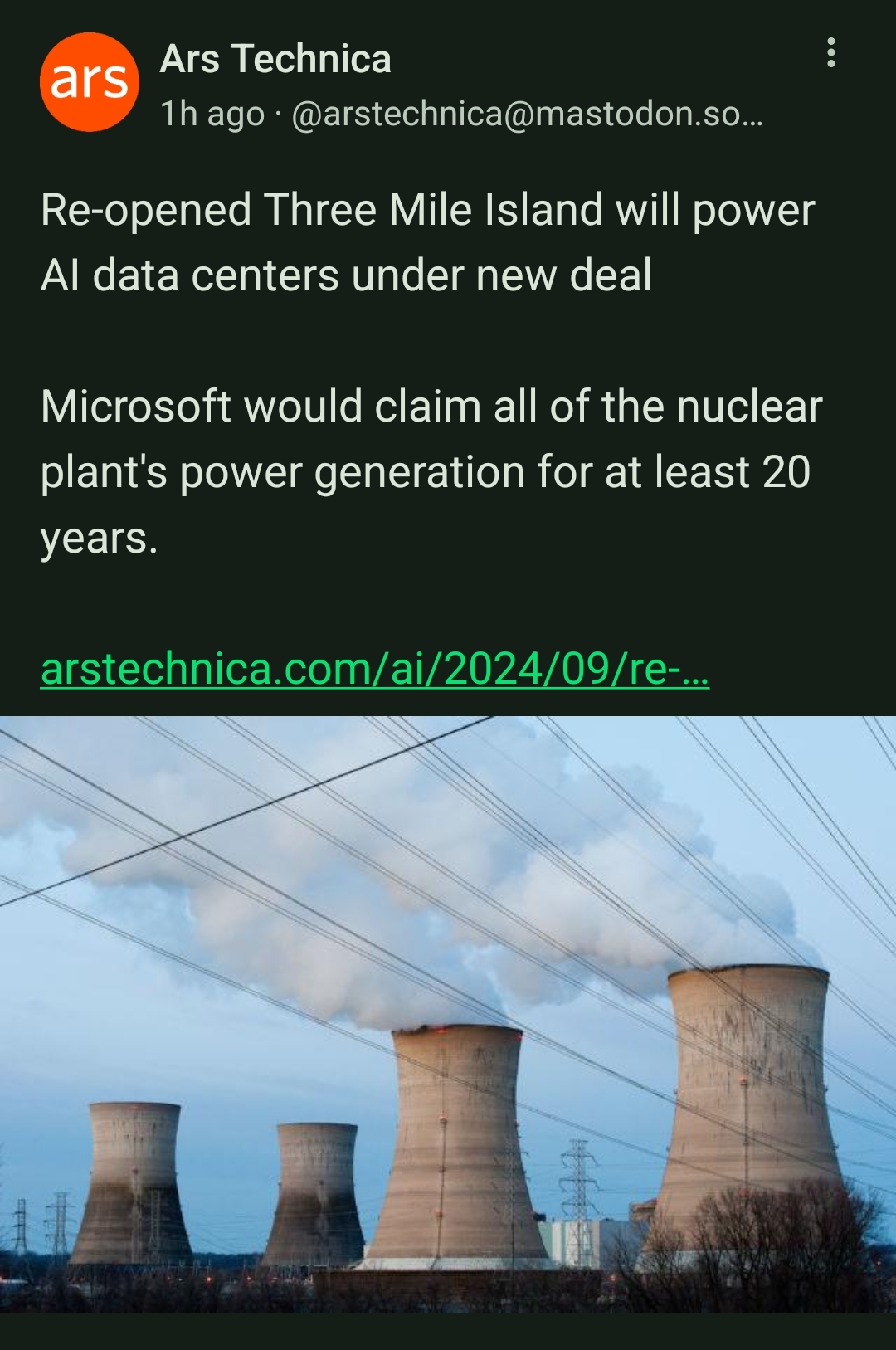this post was submitted on 20 Sep 2024
374 points (99.2% liked)
People Twitter
5290 readers
1724 users here now
People tweeting stuff. We allow tweets from anyone.
RULES:
- Mark NSFW content.
- No doxxing people.
- Must be a tweet or similar
- No bullying or international politcs
- Be excellent to each other.
founded 1 year ago
MODERATORS
you are viewing a single comment's thread
view the rest of the comments
view the rest of the comments

Would be incredibly ironic if that thing melted down again and took MS's datacenters with it.
It was only a partial meltdown, some cooling systems failed and it was successfully contained! Safety precautions designed to stop a full meltdown and release of radiation succeeded.
I know that's not really the point of your comment but I feel like this particular incident has a lot of misinfo and I wanted to help elucidate what happened.
Exactly. A properly run nuclear plant can be extremely safe.
A properly run nuclear plant will also expose people living within a 50 mile radius of the plant to less radiation than if it were a coal fired plant.
Can't have that!
This isn't true -- radioactive gases were leaked into the surrounding area. The containment vessel remained intact, and NRC concluded that no measurable harm was done, but there was definitely a release and that's why it was such a big deal. They evacuated children and pregnant women from the area in response.
https://www.nrc.gov/docs/ML2010/ML20106F218.pdf
Nuclear meltdowns are incredibly uncommon though.
I also don't wish for that. We have enough fear mongering around nuclear power as it is.
It's not as uncommon as you might expect -- here is a list for the curious. And I don't mean to denegrate nuclear energy as a power source; it is vastly better than fossil fuels and safe when done correctly -- I have participated in the safe generation of nuclear power. But the ramifications of it being done incorrectly are severe to say the least, and everyone should be aware that we do commonly have issues with it, especially in aging facilities. We commonly extend plants decades beyond what their initial construction planned for.
Edited to say I just realized you said meltdowns, not radioactive leaks, which I do agree with. Sorry for confusion
I'd like to add that I think North America needs to invest in making Thorium reactors and/or Fast-Breeder systems portable: Nuclear trains sounds stupid until you realize Thorium exposed by a train crash or maintenance issue cannot emit lethal doses, and Fast Breeder fuel spheres are no more dangerous in a sunken ship at the bottom of the ocean than in the emergency cooling tank of a damaged ship or the reactor of a working one.